Songkran, pronounced sohng-GRAHN in Thai, is the national holiday to celebrate the Thai New Year. Though January 1st is internationally recognized, the official change of the Thai yearly calendar happens in mid-April. As a visitor to Thailand during this holiday, it will be impossible to miss out on the celebrations. Though celebrations include a range of activities and events, most visitors know Songkran as the world’s largest water fight. The unique aspect about Songkran is that absolutely everybody takes part in the water festival. From young to old, local to tourist, nobody is off limits from len nahm or “water play”.
History of Songkran
As a country, Thailand’s national celebrations originate from a variety of cultural practices that span the Asian continent from India to East Asia. The name Songkran was taken from the Sanskrit samkranti which translates literally as “astrological passage”. This name comes from a Hindu spring festival that marked the arrival of the new harvest season in Ancient India. Each day in the Thai Songkran week has a corresponding color, flower, jewelry stone, food, and other symbolic associations that tie the celebrations to its historical significance. As with most new year celebrations around the world, Songkran focuses on cleaning out the old and looking forward to the new.
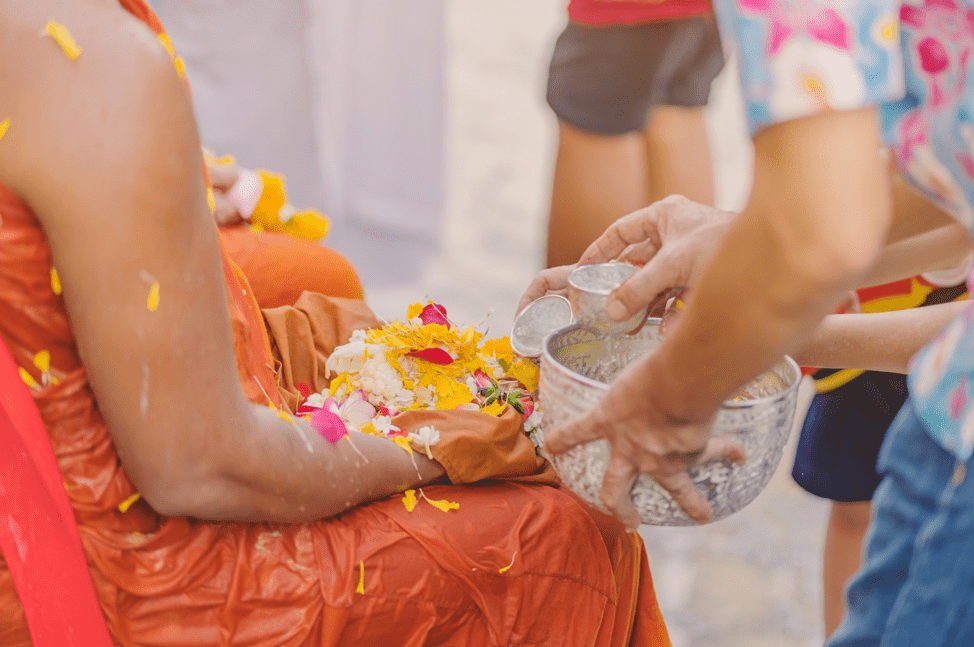
Modern Celebrations in Thailand
In modern times, Songkran is the main holiday when Thais get vacation time. People living and working in the capital of Bangkok take the opportunity to travel to their home village and spend time with family. Devout Buddhists will do merit-making and give offerings at their local temples. The faithful pour water over Buddha statues in a purification ritual that allows believers to wash their sins away and avoid bad luck in the upcoming year. Songkran is also a time for respect and reverence for one’s elders.
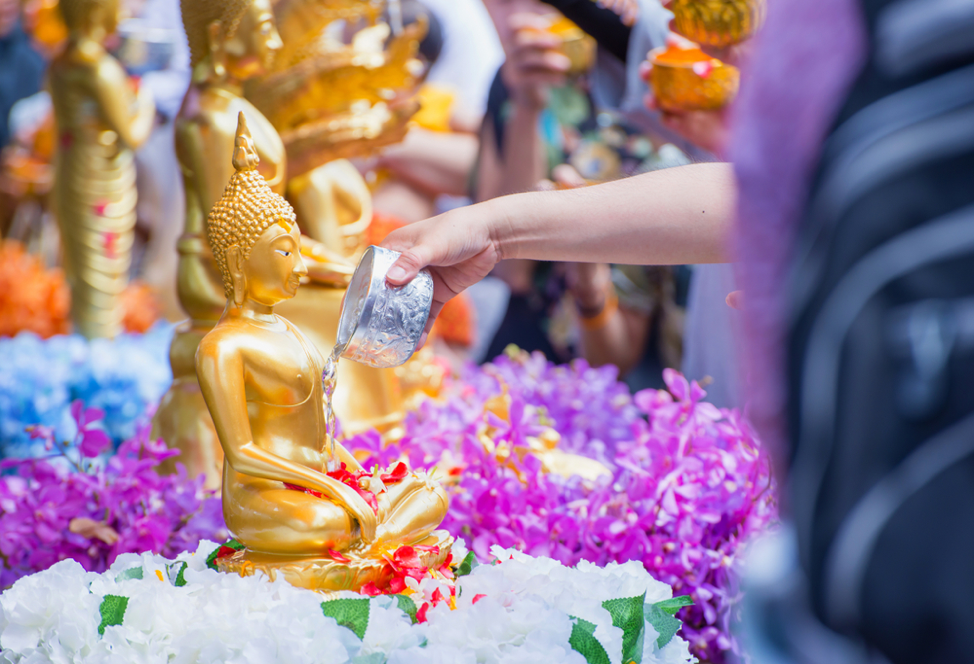
Grandparents and parents receive ritual foot-washing and gift-giving from younger generations in a show of honor to those that have paved the way for their future success. Outside of the family, Songkran features parades, festivals, beauty contests, and having fun splashing water on revelers all across the country.
How to Celebrate as a Tourist
In 2019, Songkran will last from April 12th-16th, with the main day observed on Saturday, April 13th. Every city has multiple locations to participate in fun water splashing. If you are on the streets in Thailand, there is a 100% chance that you will soon be drenched with water and taking part in the Songkran festival—whether you like it or not. Here are tips to celebrating Songkran safely and with respect to the local culture.
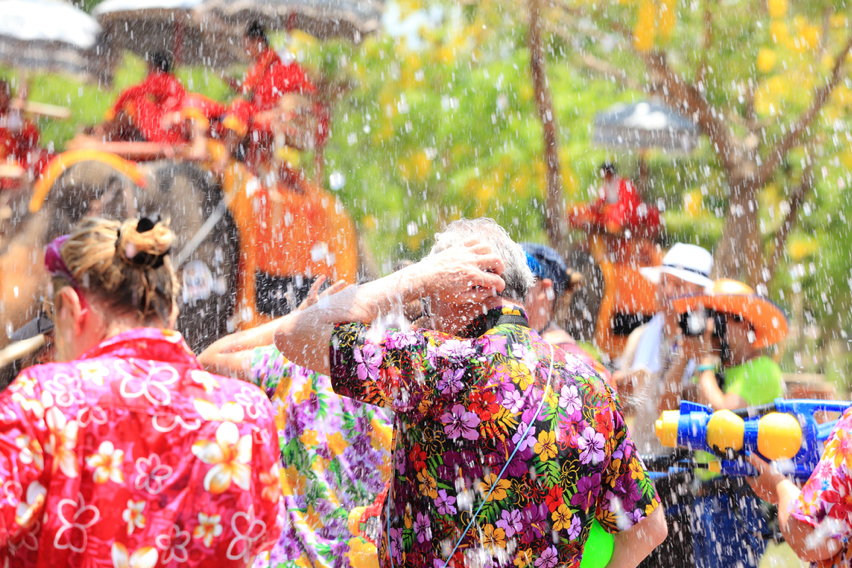
Observe the dress code. Thai culture is actually fairly modest. To blend in, don a tropical-print shirt over your swimsuit with shorts or pants on bottom. Opt for Croc-style plastic shoes or flip-flops during this week. Clear plastic glasses can protect your eyes from water spray as well as baby powder, which Thai people will smear on your cheeks as you pass. Finally, protect your electronics in a waterproof pouch so that you can catch every Insta-moment without risking any costly damage to your phone. All of these items are available for sale at roadside stands so pack light and purchase from a local vendor.
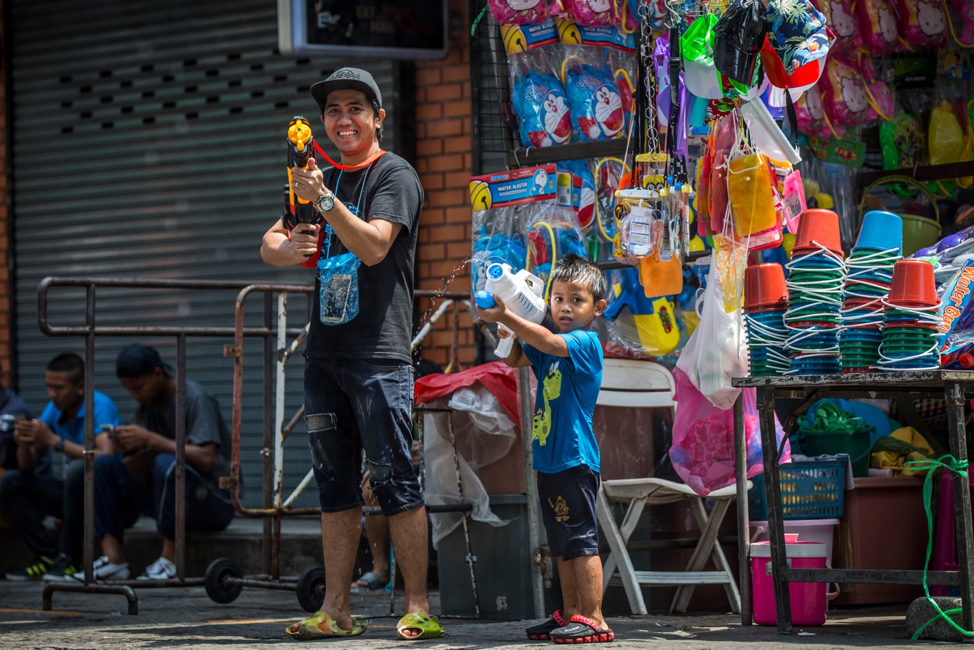
The smartest Songkran participants find a big water cannon with few refill needs. Think about the size of the Super Soakers you owned when you were 12 years old and you will have the right idea. Some places to look are the Central World shopping mall or large grocery stores like Big C.
Be extra careful on the roads. Songkran is known as a dangerous time of year for road accidents in Thailand. Be attentive when walking in the road and take advantage of Bangkok’s world-class public transportation system by riding the air-conditioned BTS Skytrain and MRT Metro systems to get around town.
Be safe with your water. Driving in slick conditions is dangerous for everyone, so don’t spray the drivers of vehicles (cars, motorbikes, passenger trucks, etc.) in the face. Out of respect, you should also avoid splashing police officers, the elderly, and monks as they may need to move about the streets during Songkran without participating in the water fight.
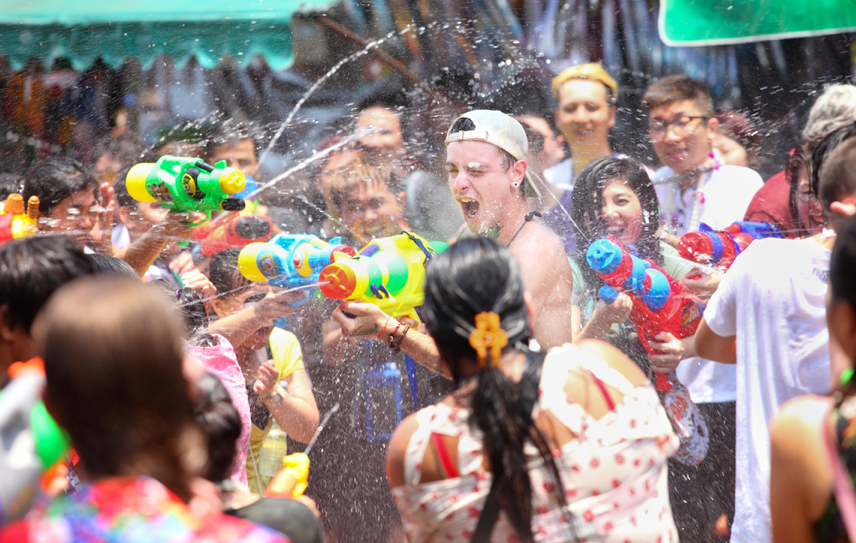
Image: Shutterstock
With these tips in mind, go wild and enjoy splashing around in the tropical Thai weather! We’ve crafted a region by region list of some of the events you can find across Thailand during the holiday.
Visitors to Thailand during Songkran are sure to have an exciting experience that is sure to be the memory of a lifetime. Remember, Songkran is all about cleansing things from the past year and focusing on new beginnings. Will you be traveling to Thailand during Songkran this spring? What kind of new beginnings are you hoping for in your own life?





